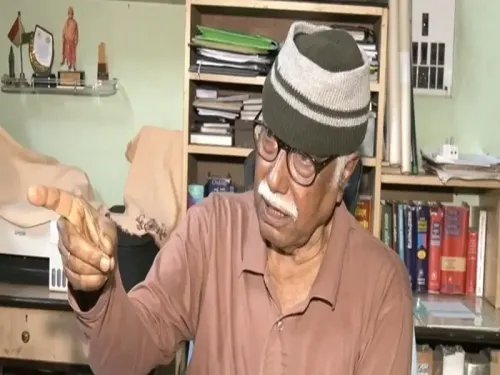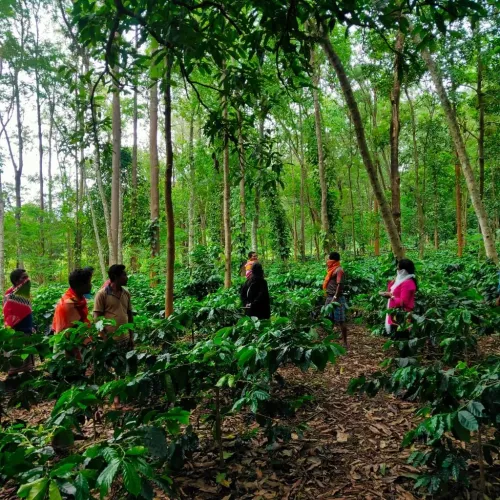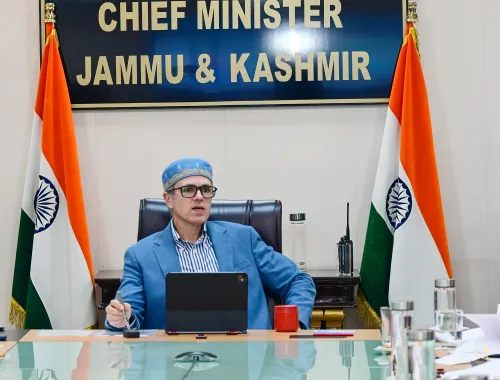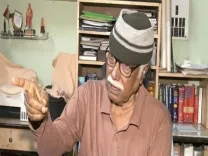Simultaneous Elections: A Pathway to Development and Less Political Friction
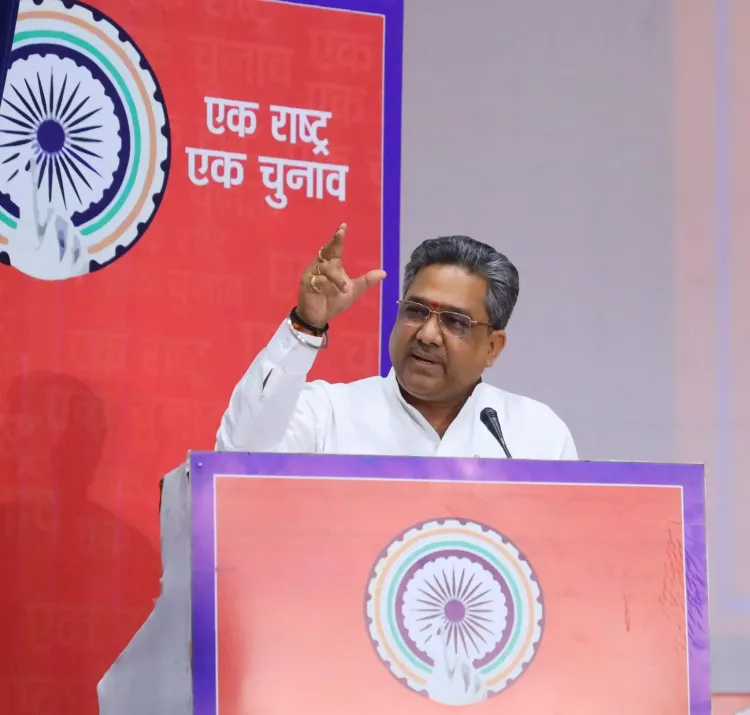
Synopsis
Key Takeaways
- Simultaneous elections can reduce political rivalry.
- It can enhance opportunities for youth.
- Frequent elections lead to voter apathy.
- Cost savings and economic growth are potential benefits.
- Historical context shows previous success with unified elections.
Jaipur, March 25 (NationPress) During a discussion on 'One Nation, One Election' aimed at engaging youth, students, and new voters, BJP National General Secretary Sunil Bansal stated that conducting elections simultaneously would lead to reduced political maneuvering and increased development.
He remarked that unified elections would allow governments to prioritize long-term growth, create enhanced opportunities for the youth, and diminish the influence of dynastic political entities.
The gathering took place at the Panchayati Raj Institute auditorium on Jawahar Lal Nehru Marg, where Bansal elaborated on the potential advantages of synchronized elections across the nation.
“'One Nation, One Election' will minimize political contention and foster governance centered on performance. This initiative represents a significant step towards realizing Prime Minister Narendra Modi's vision of a developed India by 2047,” he asserted.
Bansal pointed out that the frequent elections over the past three decades have resulted in voter disillusionment, with 40 percent of eligible voters choosing not to participate.
He proposed that aligning Lok Sabha and state Assembly elections, followed by local body elections within 100 days, could reinvigorate voter engagement and reinforce democracy.
He also highlighted the financial burden of ongoing elections.
Referencing a report, he noted that the last Lok Sabha elections incurred a cost of Rs 1.37 lakh crore, averaging Rs 1,400 per vote.
Government estimates suggest that synchronized elections could enhance India's GDP by 1.5 percent, thus bolstering economic growth.
Bansal clarified that the notion of 'One Nation, One Election' is not a novel concept.
“From 1951 to 1967, India operated under a framework where Lok Sabha and state Assembly elections were held concurrently. However, this system was disrupted due to the early dissolution of certain state Assemblies and the extension of the term of the fifth Lok Sabha during the Emergency in 1977.
“We must reinstate this system and raise public awareness about its advantages through a nation-wide outreach initiative,” Bansal advocated.
During the event, Rajasthan BJP President Madan Rathore echoed similar views, deeming 'One Nation, One Election' as a vital advancement toward India's development and economic efficiency.
“To propel India's growth and curtail unnecessary expenses, we must unite and actively engage in this campaign. A proposal supporting this initiative should be forwarded to the Joint Parliamentary Committee (JPC) through various national projects,” Rathore remarked.
He also mentioned that Chief Minister Bhajan Lal Sharma is pursuing a 'One State, One Election' model in Rajasthan.
The State BJP President reminded that on September 2, 2023, the Union government established a high-level committee led by former President Ram Nath Kovind to investigate the viability of conducting simultaneous elections.
The committee sought feedback from the public and political entities, receiving responses from 47 political parties, of which 32 endorsed the proposal, citing better resource management and social harmony, according to BJP leader Madan Rathore.
Legal experts, former Chief Justices of India, and Election Commissioners were also consulted, with most supporting the initiative, he added.
The State convener of the 'One Nation, One Election' campaign, Sunil Bhargava, outlined the legislative advancements related to the initiative.
He mentioned the 129th Constitutional Amendment Bill, which enjoys strong backing from Prime Minister Narendra Modi.
However, due to requests from MPs, the 'One Nation, One Election' Bill was referred to the JPC, which subsequently formed the high-level committee under former President Kovind.
Bhargava emphasized the administrative and financial benefits of synchronized elections, such as improved governance, emphasis on developmental strategies, reduced disruptions from the Model Code of Conduct, more effective resource allocation, enhanced fiscal management, and heightened investor confidence.
The campaign for 'One Nation, One Election' is gaining momentum across the country, with BJP leaders advocating for increased public awareness and support, as reported by party leaders.

